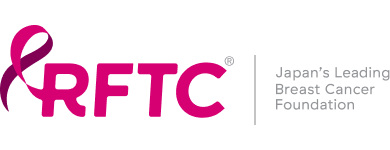
08 Mar Could our immune system be used to destroy cancer?
PiNK 2021 Winter Issue
Immunotherapies – treatments that help the immune system target and destroy cancer cells – are a rapidly growing area of research. Edd Jones looks at the science behind immunotherapies and some of the exciting research Breast Cancer Now is funding.
The immune system – our guardian protector
Our immune system is made up of specialised cells, tissues and organs that work together to protect our bodies from disease.
The cells of our immune system are called white blood cells. There are many types, and each has a unique role in protecting the body from infection.
One type eats viruses or bacteria it encounters and displays their broken parts to turn on the rest of the immune system.
Another type, called T cells, assesses whether a cell is a friend or foe. T cells can then trigger an immune response and activate other immune cells against the enemy.
As part of this process, other cells act as a form of memory for the immune system and produce antibodies. If our body faces a threat it has seen before, the antibodies recognise it and alert the immune system to produce a quicker response.
How immunotherapies work
Immunotherapies can work in different ways to stimulate these processes and help the immune system to recognise and destroy cancer cells. However, immunotherapies for breast cancer are currently in research stages. For a long time, it was thought that immunotherapies may not work to treat breast cancer. But now we know more about breast cancer and the immune system and can change that.
Here are just two of the projects we’re funding.
Developing a safe immunotherapy for breast cancer
Dr. John Maher and his team, based at King’s College London, want to develop a safe and effective immunotherapy for breast cancer. John has developed an immunotherapy which is effective against HER2 positive breast cancer.
Some breast cancer cells have a higher than normal level of a protein called HER2 on their surface, and this stimulates them to grow. These breast cancers are known as HER2 positive, and account for about one in five breast cancers.
Unfortunately, HER2 is also found on some other cells, such as heart or lungs cells, which means the immunotherapy may also act against them and cause serious side effects.
John hopes to reduce the risk of side effects by adapting the immunotherapy. He wants to add a safety feature that will make sure it acts only against breast cancer cells. The safety feature will recognise another molecule that is only preset on breast cancer cells, and not any healthy cells. And the immunotherapy will only be active if this and HER2 are present.
First they will develop the safety feature and then test the immunotherapy on breast cancer cells in the lab, before testing it further on breast cancer cells on mice.
This research could help pave the way for a safe and effective immunotherapy.
Telling cancer cells and healthy cells apart
Professor Andrew Sewell, working at the University of Cardiff, wants to understand how special T cells can target and destroy breast cancer cells, without causing harmful side effects. Ultimately, it could lead to promising new treatments.
T cells therapies have recently shown success in resting advanced skin cancer. Andrew and his team have found the specific T cells responsible for targeting skin cancer. They now want to find out if these cells could also be used to successfully treat breast cancer.
They found that these T cells can target breast cancer cells without harming healthy tissue. But their most exciting feature is that they could potentially be used for all cancer patients.
T cells rely on a molecule called HLA to recognise cancer cells. These molecules are unique to every person, which means that T cell therapies can only be made for individual people. But the specific T cells found by Andrew’s team don’t rely on HLA molecules and so could be used to treat many more people.
To understand more about these T cells, the researchers are hoping to find the molecules they target on the cancer cells and understand how they can tell apart cancer cells from healthy cells.
Andrew hopes this project will help drive the field of immunotherapies forward, leading to safe and effective immunotherapies for breast cancer that can be made on a wide scale.











